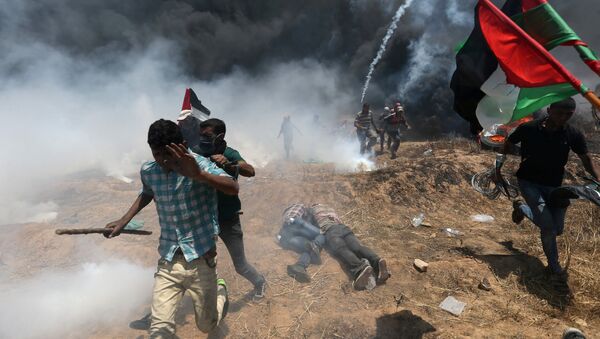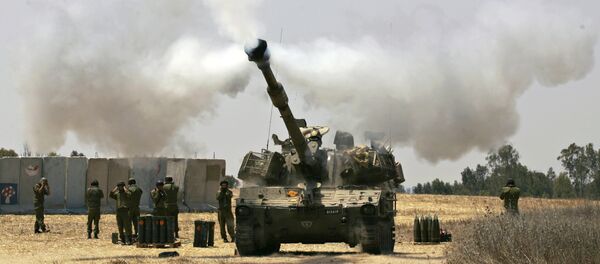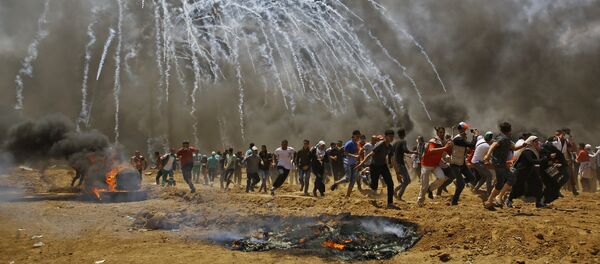June 5, 2018, marks the anniversary of the first day of the 1967 Arab-Israeli War, also known as the Six-Day War. As with the ongoing Great Return March by Palestinians in Gaza, it was mostly Israel's enemies who suffered then.
Journalist and documentarian Dan Cohen, who directed the new documentary "Killing Gaza," and Miko Peled, author of the new book "Injustice: The Story of the Holy Land Foundation Five," join Loud & Clear on Radio Sputnik to talk about the war and how its outcome shapes the Israel-Palestine conflict today.
During the war, Israel, then a fraction of the size of the current state, launched a surprise incursion against its Arab neighbors including Syria, Egypt (then, the United Arab Republic) and Jordan, seizing land that it continues to claim as its own today — the West Bank, Golan Heights and Gaza. All these areas, the United Nations has repeatedly stated in resolutions over the years, are still illegally occupied by Israel.
"Israel launched a massive attack against the Egyptian air force as a war of choice and it was, you know, popularly portrayed as Israel… just defending itself from these surrounding Arab armies that were going to invade," Cohen said, adding, "if you look at the record, it's really not true."
For starters, "there was a lot of division among the surrounding Arab countries and Israel was not under any real threat," Cohen told Loud & Clear hosts Brian Becker and John Kiriakou. "Israeli society was just kind of withering at that point; the economy was not doing so well and young Israelis were actually leaving the country, seeking opportunity abroad in the kind of colonial settler spirit that… filled the Israeli public for years after the establishment of the state [in 1948] and the ethnic cleansing… had kind of subsided."
"It was a massive expansion," Cohen said of the 1967 war.
Peled noted how the high-profile killing of 21-year-old Palestinian medic Razan Al-Najjar closely coincides with the 51st anniversary of the Six-Day War "and in many ways, it's quite symbolic that 51 years later, Israel is still… playing as though it's maintaining some kind of a moral high ground, whereas it's violating every international law. It's abusing the rights of Palestinians, it's killing, it's occupying, it's breaking every moral code that we could possibly think of and getting away with it."
— Ahmad Algohbary (@AhmadAlgohbary) June 2, 2018
Najjar was killed by Israeli sniper fire from behind during protests along the border fence erected by Israel around Gaza — demonstrations dubbed the Great Return March and intended as a cry against the expulsion of Palestinians from their land, much of which occured in 1967.
"I think Razan Al-Najjar is… a person who really captures the essence of Gaza in terms of its resistance… she's at the front lines of the Great March of Return where she'd been tending to wounded protesters for every week since the beginning," Cohen said. The protest started on March 30 and was supposed to continue until May 15, but remains ongoing. On May 16, more than 3,500 Palestinians had been wounded by live ammunition, but that number continues to grow.
— Tamara Nassar (@TamaraINassar) June 1, 2018
Like the Six-Day War, which saw the deaths of more than 20,000 Arab troops and fewer than 1,000 Israelis, the overwhelming majority of casualties have been from the sides opposing Israel. No Israelis have been killed in the Great Return March.
"On one hand we see Razan Al-Najjar's incredible display of dignity and then on the other hand we see… from the US and Israel, we just see this ugly face of imperialism," Cohen noted. Israel "really isolates itself, as the rest of the world doesn't really want to have much to do with this total slaughter."



